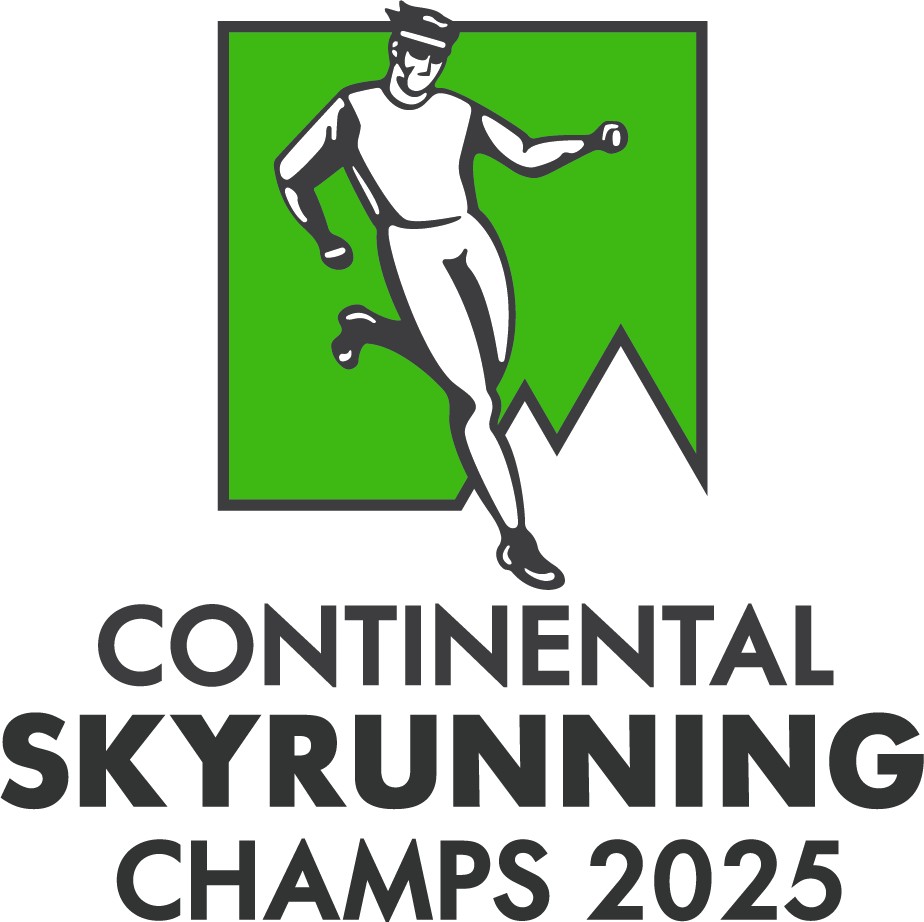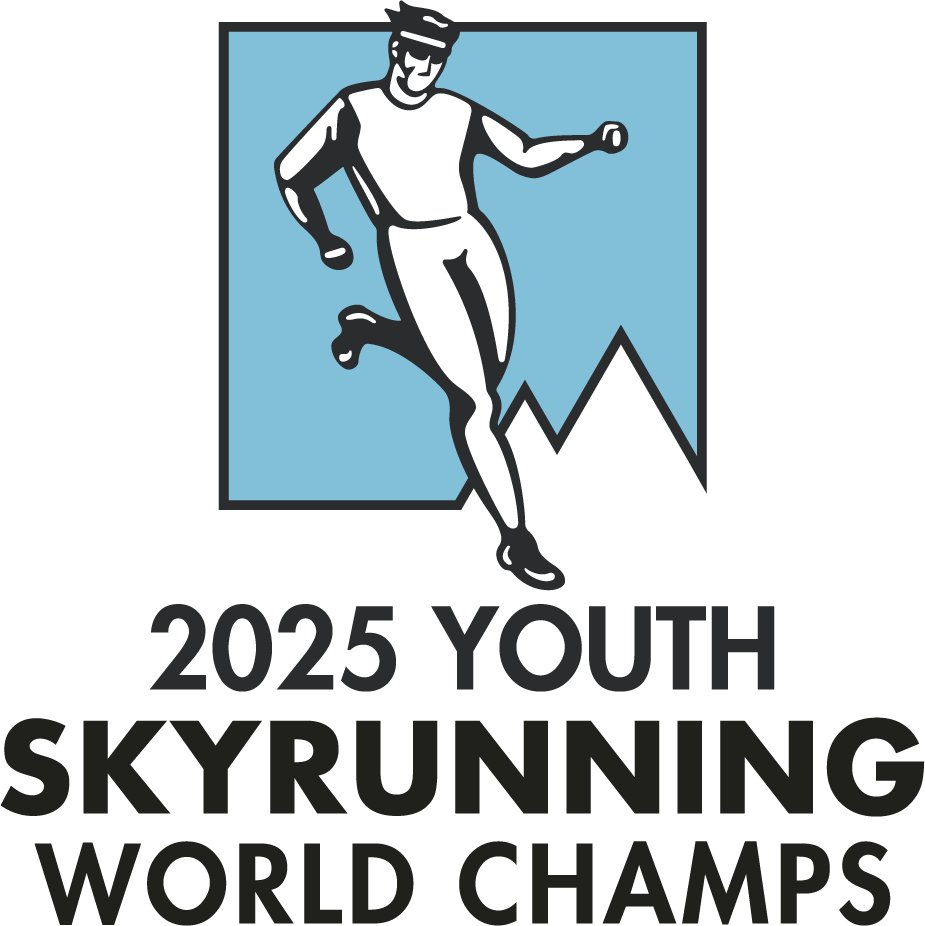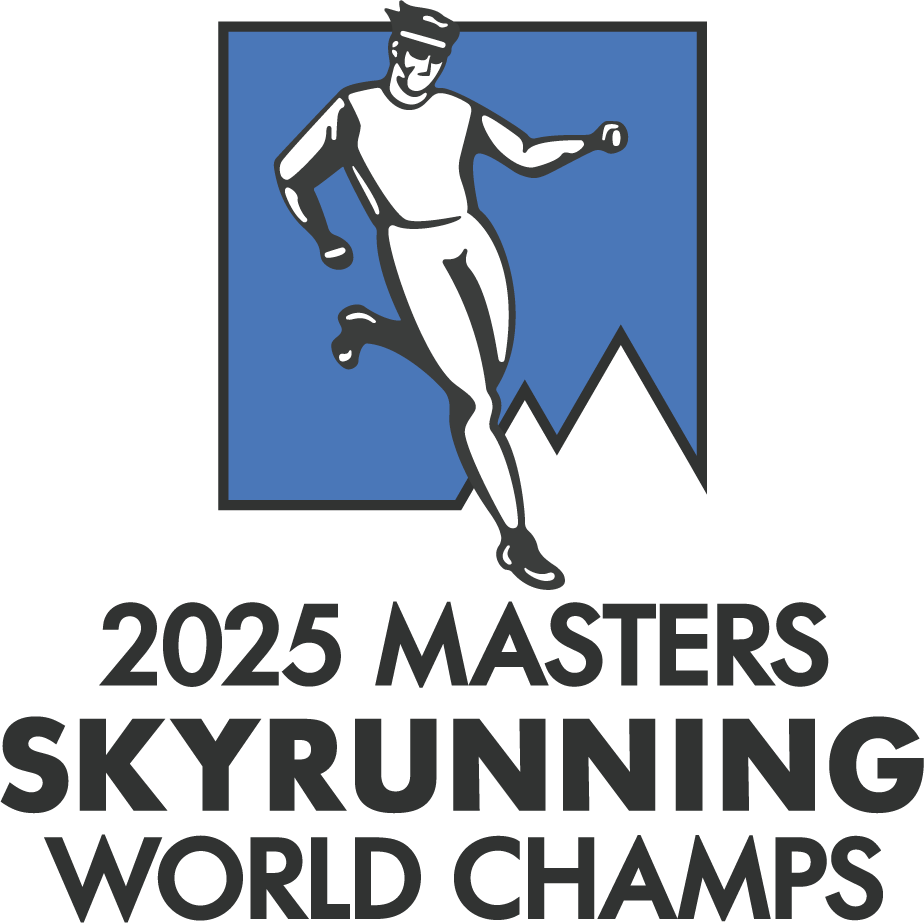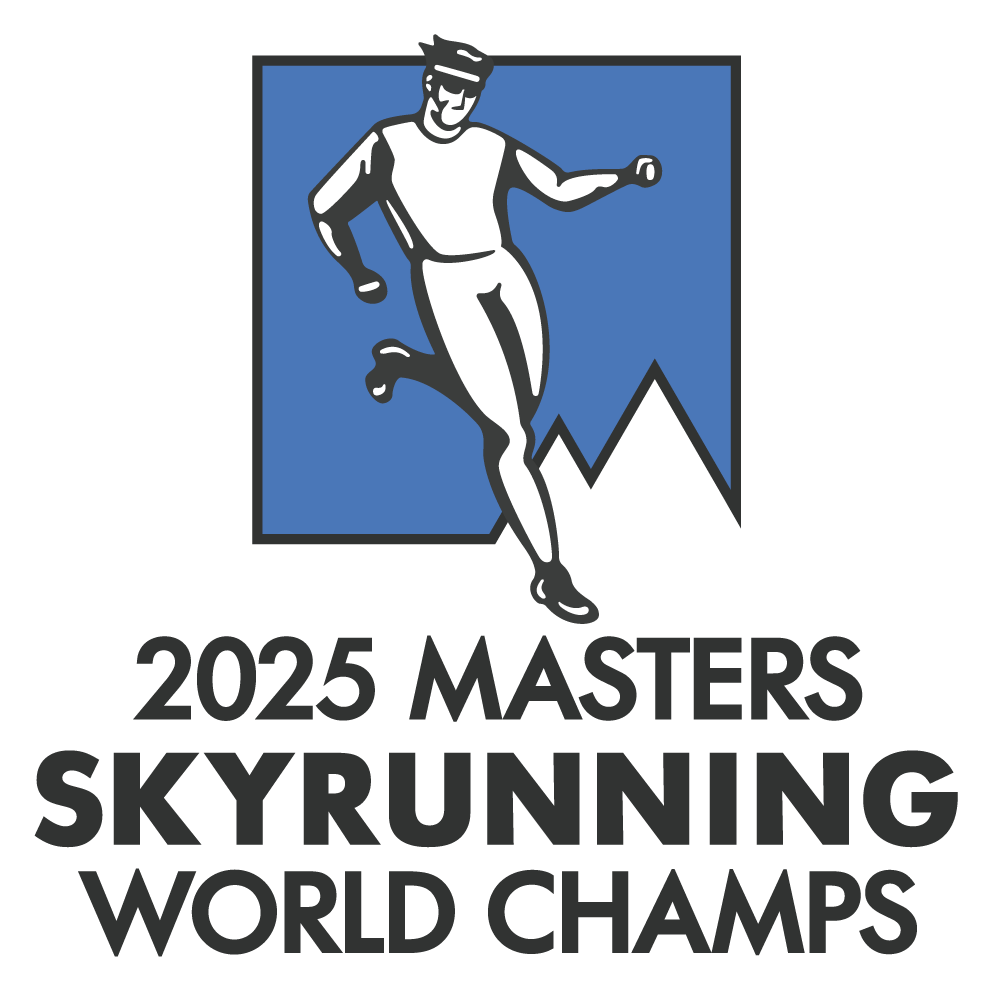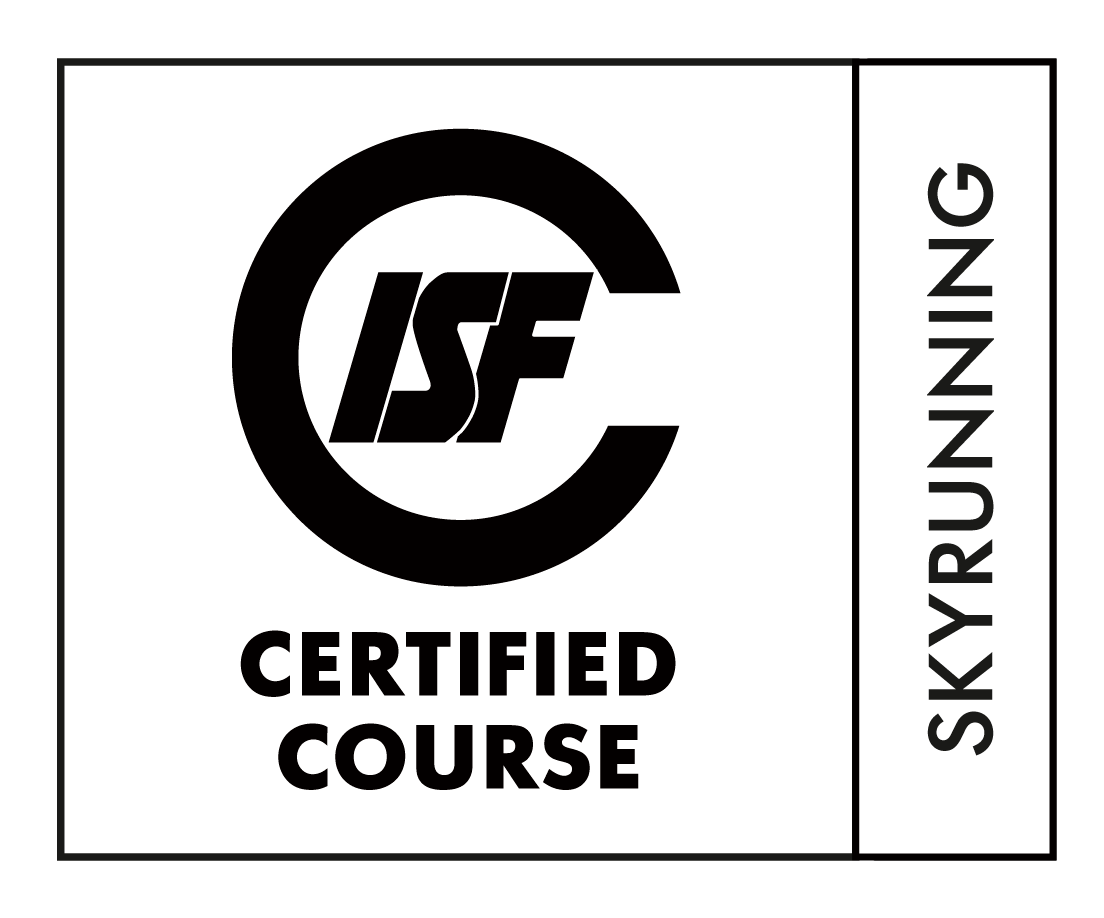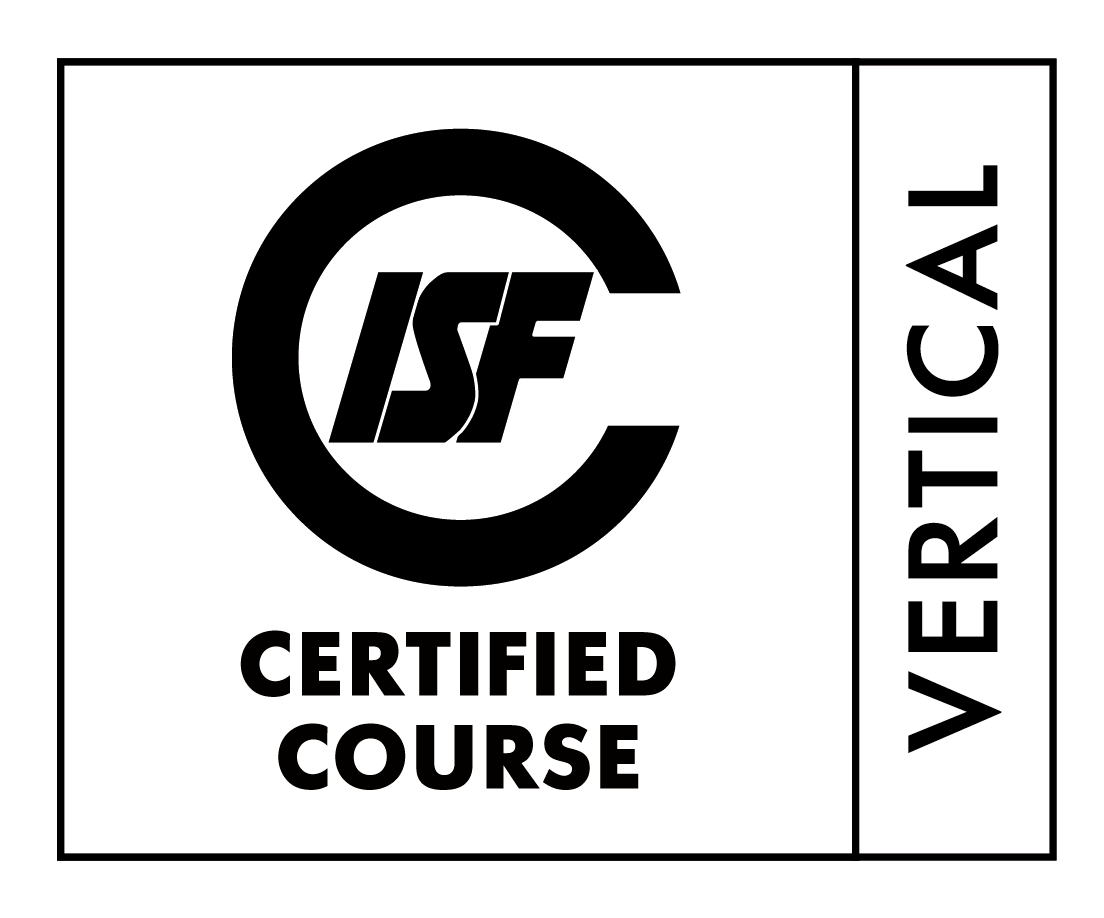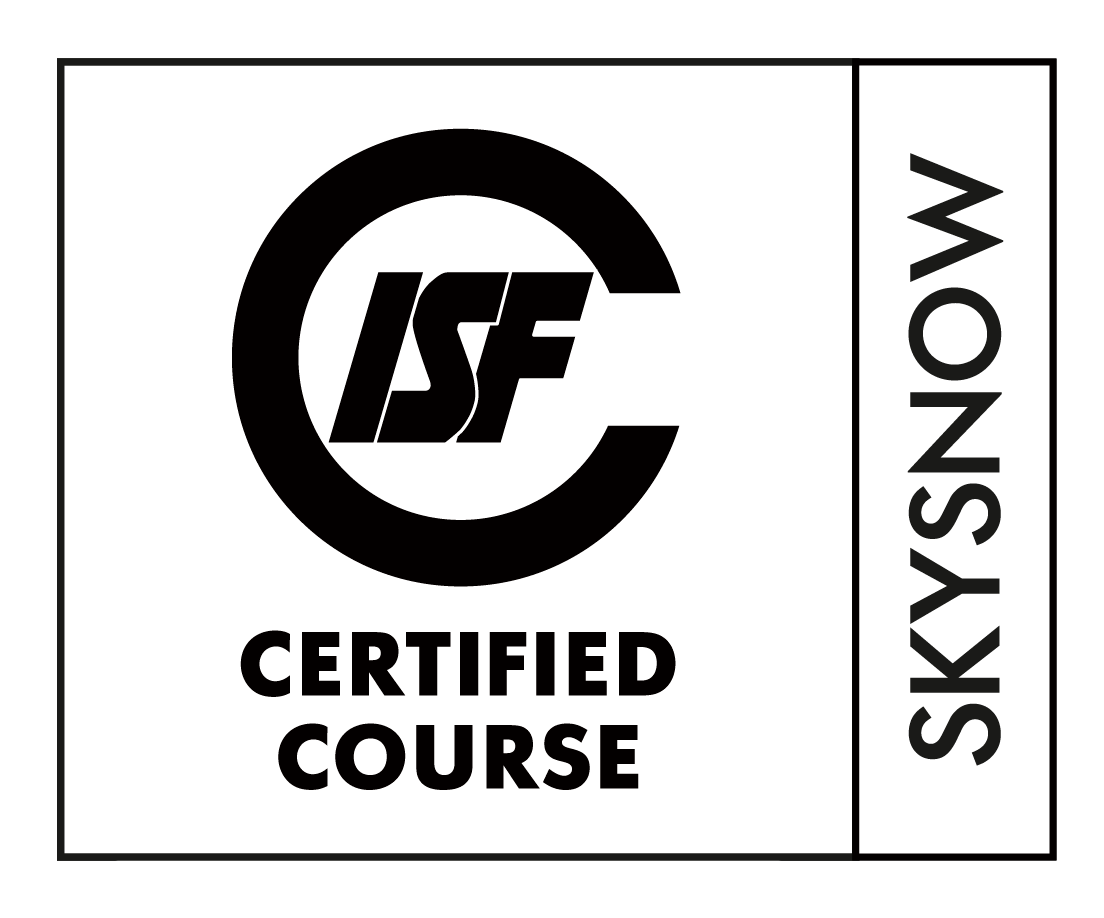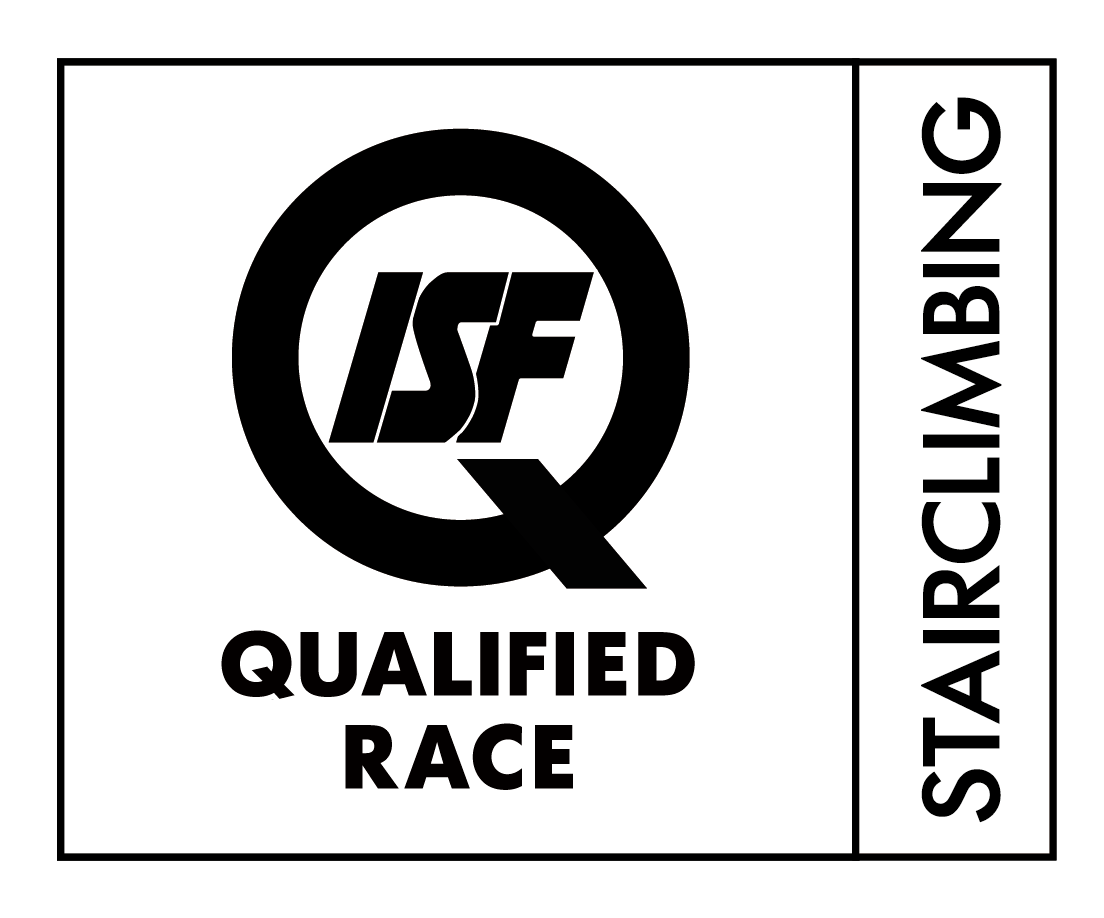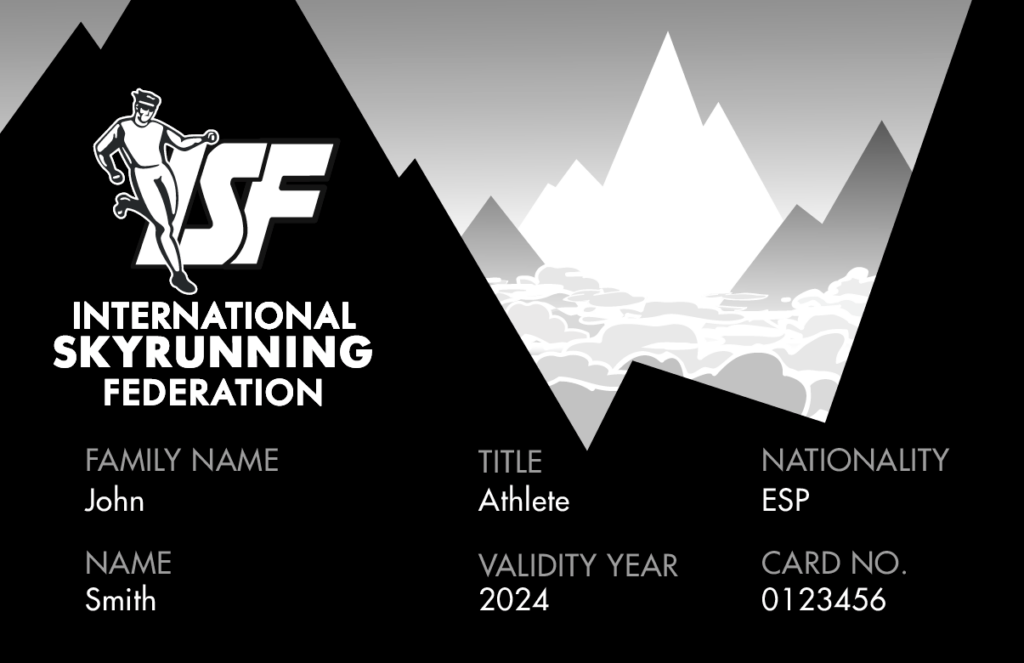Preamble
The International Skyrunning Federation was founded in 2008 replacing the Federation for Sport at Altitude (FSA), founded in 1995.
The International Skyrunning Federation, hereinafter ISF, is the only governing body created to promote, and administer the sport of skyrunning. Skyrunning is defined as the sport of running on mountain terrain on low, medium and high altitude with a steep incline. Hands and certain equipment may be used to aid progress according to specific rules. Technical sections are inherent to the sport, but the climbing difficulty must not exceed II° grade (UIAA). Events may be held year-round.
The ISF undertakes to diffuse the practice of skyrunning with respect for the environment, to promote private and public sports events, to develop training schools and workshops and to foster the medical-physical welfare of competitors.
The ISF scope is to administer the sport of skyrunning, competitions and events as an independent International Federation with its own legal entity.
I. Basis
Article 1
The International Skyrunning Federation (ISF) is the governing body for all aspects of skyrunning.
The principal purposes of the ISF are the direction, regulation, promotion, development and furtherance of the sport of skyrunning on a worldwide basis.
The ISF fosters links, networks, and friendly relations among its members, their athletes, officials and other sporting bodies.
The ISF is the final authority for all matters concerning skyrunning.
II. Legal form of association, headquarters and languages
Article 2
The ISF is a non-governmental international association with a non-profit-making purpose of international interest, having legal personality pursuant to Art. 60 ff. of the Swiss Civil Code.
- The ISF seat is in Switzerland with costs and location decided by the Management Committee.
- The ISF headquarters and relative outsourcing may be located in a country other than Switzerland upon the decision of the Management Committee.
Article 3
The official language of the ISF is English.
III. Principles and objectives
Article 4 – Principles
All activities of the ISF are independent of any political or governmental influence.
The ISF rejects all forms and means of discrimination against individuals, groups, organisations or countries on grounds of ethnic origin, gender, language, religion, politics or on any other grounds.
The ISF is committed to creating gender balance and gender equality in the sport and supports the promotion of women at all levels including management and leadership.
Article 5 – Objectives
The objectives of the ISF are:
- To direct, encourage, promote, develop, regulate, and supervise skyrunning competitions worldwide;
- To fight against doping and all other processes and procedures that may undermine sporting equality; to apply the IOC Medical Code and implement Anti-doping Rules in accordance with the World Anti-Doping Code;
- To promote good sporting practice;
- To generally promote this sport as a healthy and educational activity for youth;
- To establish and maintain rules and standards for competitions in accordance with the general principles described in the Statutes and Regulations;
- To establish and maintain rules for international competitions, and for the participation in such competitions, in accordance with the Regulations;
- To monitor and enforce the application of those rules by the Continental Councils and the Member Federations;
- To award licences and contracts to ISF Members and other organisations that seek authority to organise official competitions and associated activities;
- To establish training opportunities for the development and education of officials;
- To protect the integrity of skyrunning by developing and enforcing standards of conduct and ethical behaviour and implementing good governance;
- To fight against competition manipulation;
- To promote gender equality in all aspects;
- To fight against any form of harassment;
- To fight against irregular or illegal betting and gambling;
- To advocate the safety and rights of athletes;
- To promote the sustainable development of the sport and to maximise the protection of and minimise the impact on the environment, notably when organising and promoting its activities;
- To respect the Olympic Charter and to develop the sport towards possible programme status in the Olympic Games.
IV. Members
Article 6 – Membership Categories
ISF Membership is open to organisations actively involved in skyrunning. All categories of Members as defined in this Article 6 are considered ISF Members and are subject to ISF Statutes. The ISF recognises only one organisation in each country with the exception of Associate Members.
Specific rights and duties of different Membership Categories are detailed in the Members’ Rules.
- FULL MEMBERS
a) NATIONAL FEDERATIONS – Full Members of the ISF must be recognised by the National Sport Authority and/or National Olympic Committee that act as the national representatives of skyrunning in their country;b) ASSOCIATIONS – Full Members of the ISF actively seeking recognition by the National Sport Authority and/or National Olympic Committee, that act as the national representatives of skyrunning in their country.
- Full Members’ annual fees are fixed by the General Assembly;
- Full Members are entitled to vote at the ISF General Assembly and within their relevant Continental Council;
- Full Members are entitled to register athletes in all ISF competitions;
- Full Members may apply to organise any type of ISF Event.
- ASPIRANT MEMBERS
Aspirant Members are associations seeking to initiate skyrunning activity in their country and seeking recognition by the National Sport Authority and/or National Olympic Committee. Aspirant Members are admitted under the guidance, patronage and representation of a member federation.
Aspirant Member status is temporary, with a maximum duration of three years. After that the Member is promoted to Full Member, cancelled, or the Management Committee may decide to extend the Aspirant Member status to allow the full formation of the Federation.
Only one Aspirant Member is accepted in each country.
- Aspirant Members’ annual fees are fixed by the General Assembly;
- Aspirant Members may participate at an ISF General Assembly or Continental Council, but have no voting rights;
- Aspirant Members are entitled to register athletes in all ISF competitions;
- Aspirant Members cannot organise any kind of ISF event.
- ASSOCIATE MEMBERS
The ISF may admit organisations affiliated with skyrunning as Associate Members, or organisations in countries where an ISF Full Member already exists (6.1). The Full Member of the relevant country must approve the affiliation of Associate Members.
- Associate Members’ annual fees are fixed by the General Assembly;
- Associate Members are not entitled to vote. They are entitled to participate in the ISF General Assembly and their relevant Continental Council;
- Associate Members are not entitled to register athletes in any ISF competition;
- Associate Members may apply to organise ISF events, provided they have the support of their National ISF Full Member;
- Associate Members are entitled to propose members for all ISF Committees, provided they have the support of their National ISF Full Member.
- SUPPORTING MEMBERS
Organisations managing only a specific discipline, not managed by the Full Member (ie Stair Climbing). For this discipline:
- Supporting Members have their annual fees fixed by the General Assembly;
- Supporting Members are not entitled to vote. They are entitled to participate in the ISF General Assembly and their relevant Continental Council;
- Supporting Members are entitled to register athletes in an ISF competition, only for the discipline they manage;
- Supporting Members may apply to organise ISF events, provided they have the support of their Full National Member.
- OBSERVER STATUS
All Members may require a temporary suspension of their obligations due to serious causes (war, revolution, famine, drought) that represent an impediment for the whole country. Any reduction is temporary and must be justified with official documents from the nation’s government.
ADMISSION CRITERIA
Article 7
Applicant organisations shall send all required information to the ISF Head Office in the official language and in the format required by the relevant regulations.
The General Assembly approves new members’ status. Between General Assemblies, admission may be made by the Management Committee at any time of the year. Such admission requires the final ratification of the General Assembly at the next meeting.
All membership rights and responsibilities take effect at the moment of the provisional admission by the Management Committee.
OBLIGATION OF MEMBERS
Article 8
a) Full Members and Aspirant Members should be members of their National Olympic Committee or recognized by the National Sport Authority or actively seeking such membership;
b) Members shall comply with the ISF Statutes and Regulations and with any resolutions adopted by the ISF. Members will undertake to request the same from their individual members participating in ISF activities;
c) Members agree to respect each other’s mutual autonomy and shall in no way harm the development of other members;
d) Members shall pay annual membership fees as fixed by the General Assembly.
RESIGNATION, SUSPENSION, EXCLUSION
Article 9 – Resignation
Any member wishing to terminate membership at the end of the year shall inform the ISF Office in writing before the end of June of that year. Fees for the current year remain payable in full.
Article 10 – Suspension of a Member
A member may be suspended from membership and/or from participating in ISF approved International Skyrunning Competitions by the Management Committee, for the following reasons:
a) non-payment of any liabilities to the ISF for two consecutive years;
b) failure to comply with these Statutes or other ISF Regulations;
A suspended Member faces temporary suspension of the rights granted by its relevant membership category.
Article 11 – Exclusion of a Member
A member may be excluded from the ISF by the General Assembly for failure to comply with these Statutes or other ISF regulations. This decision requires at least half of the ISF members with voting rights to be present or represented. To be adopted, such items must receive the approval of two thirds of the votes cast.
Members facing exclusion shall be given the opportunity to be heard before-hand.
HONORARY MEMBERSHIP AND OTHER AWARDS
Article 12
The General Assembly may confer the title of Honorary ISF President; as well as conferring the title of Honorary Member. Other awards may be conferred by the Management Committee.
V. Bodies
Article 13
The ISF functions through the following bodies, each with separately defined powers and duties:
– General Assembly
– Executive Board
– Management Committee
– Continental Councils
– Statutory Committees
- Disciplinary
- Appeals
- Ethics
– Technical Committees
– Medical and Anti-doping Committee
– Athletes’ Committee
The President, in accordance with the Management Committee, may create Committees and working groups whenever necessary for the purpose of advising the ISF.
GENERAL ASSEMBLY
Article 14
The General Assembly is the highest body of the ISF and has ultimate authority for all activities. It convenes yearly within the last three months of each year.
Organisation of the General Assembly shall be entrusted alternately to one of its members.
The date and venue for the assembly shall be agreed at the General Assembly, one year prior minimum.
The General Assembly may be held in person or via online platforms and remote voting by electronic data transmission is also possible upon decision of the Management Committee.
The calling notice must be sent to all members at least 90 days prior to the date set for the Assembly, or 120 days in case elections are scheduled at the General Assembly. Candidate nominations shall be submitted to the Administration not later than 90 days prior to the General Assembly elections.
POWERS OF THE GENERAL ASSEMBLY
Article 15
The General Assembly has the following duties and powers:
- To elect the Management Committee;
- To appoint the Auditor;
- To fix admission, membership and other fees;
- To approve plans for future activities;
- To adopt and amend these Statutes, such decisions needing a quorum and majority as described in Art. 18;
- To adopt and amend all regulations; the General Assembly can, however, authorise other bodies to independently establish technical rules where this seems appropriate;
- To decide the expulsion of members not complying with the obligations as stated in these Statutes;
- To approve the Minutes of meetings;
- To receive, discuss and approve the Management Committee report;
- To review and approve the annual accounts after hearing the Auditor’s report and to discharge the Treasurer and the other members of the Management Committee;
- To approve the provisional budget;
- To approve the ISF logo and other related images upon the recommendation of the Management Committee;
- To decide all matters which no other body is competent to decide or which other bodies refer to the General Assembly for the final decision.
VOTING RIGHTS
Article 16
Each Full Member of the ISF as defined in Article 6 has one vote. The other categories of members as defined in Article 6 have no voting rights.
Article 17
At any General Assembly, each Member shall be represented by one delegate who may be assisted by one or two advisors.
a) A Member who has not paid their dues in full prior to the General Assembly is not entitled to vote.
b) Any Member having voting rights may be represented by the delegate of another Member being duly entitled to vote by means of a written proxy. One delegate may not represent more than two other Members at the same time.
QUORUM
Article 18
The General Assembly shall pass its resolutions and carry out its elections with an absolute majority of the votes of the Members present or represented, unless mandatory law or the Statutes provide otherwise.
Resolutions of the General Assembly concerning changes and amendments of the Statutes shall require the approval of at least two thirds of the votes of the Members present or represented.
TAKING OF DECISIONS
Article 19
Voting at the General Assembly is conducted by show of hands or electronic vote. Upon the request of any delegate entitled to vote, supported by at least one other delegate, any vote must be taken by secret written ballot or anonymous electronic vote.
Elections shall always be decided by secret written ballot or anonymous electronic vote.
The election process is described in the relevant document approved by the General Assembly. The Executive Board will establish a Nomination Committee to review the nominations in preparation of the elections. The composition of the Nomination Committee is described in the relevant document approved by the General Assembly.
AGENDA AND THE RIGHT TO INTRODUCE PROPOSALS
Article 20
Items for inclusion in the Agenda of any General Assembly may be presented by:
a) the Management Committee
b) any Full Member
Items presented by ISF Members are to be sent to the ISF Management Committee at least six weeks before the General Assembly.
Proposals of amendments to the Statutes, with relevant explanation, shall be presented to the Members with the Provisional Agenda (60 days prior to the General Assembly).
Non-Full Members are entitled to speak, but not to present motions to the General Assembly, in accordance with the relevant regulations.
AMENDMENTS TO THE AGENDA
Article 21
The full Agenda of a General Assembly shall be sent to all ISF Members at least four weeks before the General Assembly.
Upon affirmative vote of no less than 2/3 of the Members being present and having voting rights, the General Assembly itself may add items to the Agenda of any meeting.
EXTRAORDINARY GENERAL ASSEMBLY
Article 22
The Management Committee may at any time call an extraordinary General Assembly.
At the written request of the majority of the Members entitled to vote, the Management Committee shall convene an extraordinary General Assembly within 3 months of receipt of such request. The request must be substantiated and accompanied by a proposal for the Agenda.
MANAGEMENT COMMITTEE
Article 23
The ISF Management Committee consists of the following officers:
- President
- Three Vice Presidents
- Treasurer
- Secretary General
as well as:
- three representatives from ISF Full Members;
- one representative from each approved Continental Council;
- two representatives from the Athletes’ Committee (one man and one woman).
Management Committee members are elected on a personal capacity, and not as representative of any Member Federation and are to act independently from these.
All elected members of the Management Committee must have a fiduciary responsibility to the ISF and breach of that fiduciary responsibility could result in disciplinary action.
Article 24 – Management Committee elections
Candidates standing for election to any post on the Management Committee (with the exception of the representatives of the Athletes and the representatives of the Continental Councils) shall be presented by the Full Member association of the country where they hold citizenship.
The Executive Board is responsible for the nominating process related to the candidates for the Management Committee.
The members of the Management Committee (with the exception of the representatives of the Athletes and Continental Councils) are elected by the General Assembly for a term of four years.
Management Committee members are eligible for re-election upon submitting their written intention.
In case of resignation or incapability to hold their position, Management Committee members will not be immediately substituted. The seat will remain vacant until the next General Assembly. By-elections will be held according to the usual procedure and the elected person(s) will remain in charge for the remainder of the mandate.
Article 25 – Management Committee role and duties
The Management Committee is responsible for implementing all the policy directives and decisions made by the General Assembly. This includes in particular:
- To prepare the agenda of the General Assembly meetings;
- To prepare the annual accounts (consisting of the profit and loss statement and the balance sheet);
- To make recommendations to the General Assembly about:
– the long-term strategies of the ISF;
– regulations and rules to be decided by the General Assembly;
– the admission and expulsion of Member organisations; - To decide the creation and dissolution of Technical Committees, specific Committees or working groups and appoint a Director for each Committee or working group;
- To approve the candidates to be appointed as members of Disciplinary, Ethics and Appeals Committees;
- To set up the calendar of ISF approved competitions and to coordinate schedules of International and Continental competitions;
- To decide the terms and conditions of contracts between the ISF and organisers of ISF approved competitions and special events;
- To recommend any proposed changes to the ISF Statutes;
- To appoint and remove persons (employees) entrusted with the management of the ISF day-to-day operations;
- To make recommendations on the terms and conditions of contracts to be concluded with third parties outside ISF;
- To decide on membership issues between General Assembly meetings;
- To decide the suspension of members which do not comply with the obligations as stated in these Statutes.
Article 26 – Management Committee meetings
The Management Committee will meet as often as necessary, but at least twice every year. These meetings may be held by attendance in person or on online platforms. The Management Committee meetings are convened by the President, upon the Executive Board’s call or upon the request of the majority of its members.
Article 27 – Management Committee agenda
The Agenda for the Management Committee meetings is prepared by the Executive Board.
Any member of the Management Committee is entitled to present proposals for the agenda. Such proposals must be submitted, with relevant documentation, at least one month before the date set for any Management Committee meeting. The full agenda shall be sent by the Executive Board to the Management Committee members at least two weeks prior to the meeting date.
Article 28 – Taking of decisions
Every member of the Management Committee has one vote. All decisions of the Management Committee are taken by the majority of votes expressed either in person or by correspondence and/or by any other means of communication, and no voting rights may be exercised by proxy. The quorum of the Management Committee consists of a majority of its members. In case of a tie, the President’s vote is the casting vote.
EXECUTIVE BOARD
Article 29 – Composition and Role
The following five officers of the ISF as mentioned in Article 22 form the Executive Board of the Management Committee.
- President
- Three Vice Presidents
- Treasurer
- Secretary General
The Executive Board is responsible for carrying out routine duties and specific tasks that have to be fulfilled between meetings of the Management Committee. This includes in particular:
- To undertake administrative duties and tasks;
- To supervise and coordinate the work of the Technical Committees;
- To supervise and coordinate the work of the Continental Councils;
- To control ISF finances;
- To initiate and undertake negotiations with third parties;
- To sign contracts with third parties (President and another Board member).
All statements and contracts which bind the ISF must be signed by the President and one other member of the Executive Board. In case of absence and on request of the President, the President may be replaced by another member of the Executive Board.
The Executive Board is responsible for the functioning of the administrative office of the ISF. Any permanent employees are hired by the Executive Board and employed in accordance with the annual budget.
Article 30 – Executive Board meetings
The Executive Board meets as often as business requires. Decisions are taken by a simple majority, the President having the casting vote in the event of a tie.
The Executive Board may take decisions by correspondence and/or by any other means of communication. To be valid, such decisions must be approved by a minimum of three officers.
THE PRESIDENT
Article 31 – Role of the President
The President chairs all meetings of the General Assembly, the Management Committee and the Executive Board. The President represents skyrunning in all important matters, in particular pertaining to the IOC and other international organisations.
The President may, from time to time, delegate various aspects of ISF management to other members of the Management Committee.
The President, or a Board member designated by the President, is entitled to attend and participate in all Committee meetings, but without vote.
The President can serve a maximum of two consecutive terms.
Article 32 – Absence or Vacancy
If the President is prevented from attending a meeting of the Management Committee or a General Assembly, the Management Committee will appoint one of the Vice Presidents to chair those meetings.
In case of death or disability of the President, the Vice President shall assume the President’s duties until the next General Assembly. Should the Vice President in turn be unable to fulfil their obligations, the Treasurer/Vice President and/or the member of the Management Committee who has served on the Management Committee the longest, shall assume their duties and convene an Extraordinary General Assembly in order to elect appropriate replacements.
VICE PRESIDENT
Article 33 – Role of the Vice President
Vice Presidents may be appointed to chair meetings when the President is prevented from attending.
In case of death or disability of the President, the Vice President shall assume the President’s duties until the next General Assembly.
SECRETARY GENERAL
Article 34 – Role of the Secretary General
The Secretary General is responsible for managing all the official ISF correspondence. The Secretary General manages all communication about ISF meetings and is in charge of keeping records of all official documents issued by the ISF.
TREASURER
Article 35 – Role of the Treasurer
The Treasurer is in charge of managing the ISF bank account and to supervise all transactions carried out by the ISF.
The Treasurer coordinates the ISF finances with the auditors.
CONTINENTAL COUNCILS
Article 36
Continental Councils are responsible for the administration, development and furtherance of skyrunning competition in a specific continent or geographic area. The Continental Councils shall comply with and enforce the rules and regulations of the ISF and co-operate with ISF bodies. They are organised as detailed in a specific document. They propose Continental Championships and other competitions in their continent.
The Statutes and Regulations of the Continental Councils must be submitted to the Executive Board for approval.
Continental Councils must create an Athletes’ Committee to provide permanent liaison between active Athletes and the Continental Council. One representative appointed by the Athletes’ Committee must be a member of the Continental Council Executive Board.
COMMITTEES
Article 37
Committees are the organs responsible for specific subjects. They are formed and managed as detailed in a specific document.
The three Statutory Committees are directly under the control of the General Assembly, while the others are under the management of the Management Committee.
Rules concerning Committees and their rules are set out in a regulation made by the Management Committee.
Article 38 – Statutory Committees
1. Disciplinary Committee
The Disciplinary Committee investigates and takes appropriate action following any complaint concerning breach of rules (including the ISF Anti-Doping Rules) or misconduct reported to the ISF.
Composition and functioning of the Disciplinary Committee are described in the relevant regulations approved by the General Assembly.
2. Appeals Committee
The Appeals Committee reviews and decides on appeals related to decisions taken by the Disciplinary Committee, except in doping cases, where the appeal shall be made to the Court of Arbitration for Sport. Composition and functioning of the Appeals Committee are described in the relevant regulations approved by the General Assembly.
Decisions of the Disciplinary Committee in doping cases and decisions of the Appeal Committee may be appealed to the Court of Arbitration for Sport, in Lausanne, Switzerland. The procedure before the Court of Arbitration for Sport takes place according to its regulations. The decision of the International Court of Arbitration for Sport will be final without the right to further appeal.
3. Ethics Committee
The Ethics Committee intends to protect and encourage ethical values in ISF operations. The Ethics Committee addresses issues referred by the ISF President. It can also propose issues for consideration to the ISF President or the Management Committee following information received directly or indirectly. The Ethics Committee will consider cases resulting from a breach of the ISF Code of Conduct or Charter and elected members of the ISF. They can recommend action to the ISF President, who may address the Disciplinary Committee.
The Ethics Committee Rules and composition are defined in the relevant document approved by the Management Committee, while members are appointed by the ISF General Assembly.
Article 39 – Medical and Anti-Doping Committee
The Medical and Anti-Doping Committee protects and maintains athletes’ health standards and the status of skyrunning as a safe sport. It addresses issues impacting the health of athletes and defines the medical regulations for the safe managing of ISF
competitions. The Medical and Anti-Doping Committee ensures that ISF complies with the WADA Anti-Doping Code and supports the promotion of clean sport.
The Medical and Anti-Doping Committee composition and Rules are defined in the relevant document approved by the Management Committee.
TECHNICAL COMMITTEES
Article 40
The Management Committee appoints Technical Committees for specific tasks. The mandate of each Committee is reviewed by the Management Committee to determine its future validity and effectiveness.
Members of these Committees are proposed by Member associations. Their membership expires at end of the Management Committee term.
Each Committee is directed by one of its members (President), who is appointed by the Management Committee.
DISPUTE RESOLUTION
Article 41
Disputes arising under the ISF Statutes or otherwise, will be dealt with under the procedure and rules set out in a regulation made by the General Assembly.
The final determination of a dispute can be appealed to the Court of Arbitration for Sport (in Lausanne, Switzerland).
The procedure before the Court of Arbitration for Sport takes place according to its regulations.
The decision of the Court of Arbitration for Sport will be final and there will be no further appeal to it.
ATHLETES’ COMMITTEE
Article 42
The Athletes’ Committee provides a permanent liaison between active athletes and the ISF.
Two representatives appointed by the Athletes’ Committee are elected by the General Assembly as members of the Management Committee.
Composition and functioning of the Athletes’ Committee are described in the relevant regulations as approved by the General Assembly.
VI. Finances
Article 43 – Financing Sources
The ISF will finance its own activities through sources such as:
- Membership and subscription fees of its Members;
- The organization and authorization of Competitions, and any other fees relating to official competitions;
Any other sources that may be available (sponsorships, media rights, donations, etc).
Article 44 – Fees and Expenses
The activities of all bodies of ISF are conducted without compensation to the individuals who serve thereon. The expenses of the Executive Board, the Management Committee and the Committees are borne by the ISF according to regulations of the Management Committee.
Within approved budgets, the General Assembly of the ISF and the Management Committee are empowered to authorise payment of fees and expenses to individuals and/or organisations to provide specific professional services or advice.
Article 45 – Financial Year
The financial year of the ISF shall run from the 1st January to the 31st December annually.
Article 46 – Budget and Accounts
The General Assembly of the ISF shall receive and approve annual budgets detailing the forecast income from all sources and the proposed annual expenditure and shall establish and maintain a financial accounting system and produce annual accounts audited by the accredited Auditor, appointed by the General Assembly of the ISF.
Article 47 – Liabilities
Only the assets of the ISF can be used to settle ISF liabilities and obligations. Any liability of the Member Associations is excluded.
Article 48 – Currency
The basic currency for annual accounting purposes will be in Euros.
VII. Identity
Article 49 – Identity
The symbols, logos, trade marks, and their reproduction, as well as the name “International Skyrunning Federation” and the abbreviation “ISF” are the exclusive property of the International Skyrunning Federation and may not be used without its consent.
VIII. Bye-laws
Article 50 – Bye-laws and internal regulations
Some articles have detailed specification in the Statutes Bye-Laws, which are an integrating document to these Statutes.
Bye-laws can be redacted and amended by the Management Committee without prior consultation with the General Assembly.
IX. Dissolution of the ISF
Article 51
A three quarter majority of the ISF members may propose the dissolution of the ISF. The dissolution becomes effective on approval of the proposal by a three-quarter majority at the General Assembly, providing that at least two third of the members entitled to vote are present or represented at the General Assembly.
The disposal of the assets of the ISF shall be decided by the General Assembly dissolving the ISF and shall be in keeping with the aims of the ISF and transferred to a tax exempt Swiss legal entity.
Approved at the General Assembly, Domodossola, Italy
September 9, 2022
ISF STATUTES BYE-LAWS
Bye-law to Article 1 – Purpose
The ISF also looks after all other matters concerning the sport of skyrunning as they arise and affect competitions.
Bye-law to Article 5 – Objectives
Events
The ISF organizes the World Championship, the Youth World Championship, Continental Championships, Youth Continental Championships for all disciplines, and sanctiones the Circuits.
The ISF is also responsible for the technical organisation when skyrunning is participating in multi-sport events.
Calendar
The coordination of dates is mandatory and shall be achieved through recommendations of the Management Committee.
Gender Equality
The ISF is committed to gender equality at all levels within its competitions and management, allowing women to have the same opportunities as men.
ISF-approved competitions shall guarantee a balanced participation for Men and Women in all disciplines, including equality in prizes and prize money.
Environment
The ISF is working for “no-impact” competitions and events.
ISF-approved competitions, in particular Championships or Circuits, shall take place with all reasonable precautions to avoid any impact on the environment.
Illegal and irregular betting
This byelaw prohibits illegal and irregular betting and gambling;
- Betting or gambling in respect of any ISF competition and any involvement in such betting or gambling is irregular and is prohibited. Involvement includes helping others bet or gamble, such as by passing on information;
- This rule applies to anyone involved with an ISF competition or the ISF, including athletes, team members, coaches, representatives of national federations, organizers and ISF officials. For the avoidance of doubt, this rule does not prohibit betting or gambling by spectators (provide they are not involved with the ISF or the ISF competition in any other way);
- Any breach of this rule is a disciplinary offence.
Bye-law to Article 6 – Membership Categories
Membership Procedure and Criteria
Eligibility
Membership of ISF is open to national skyrunning organisations, uniquely representing the sport in that country. In addition, the organisation must:
- be organized with statutes and other regulations in compliance with the ISF statutes, rules and regulations;
- be open to participation without regard to race, colour, religion, national origin, gender;
- be controlled by its members according to democratic principles.
The status of Aspirant Membership is intended to be for a limited time period. The Management Committee will revise the Aspirant status every year to check the progress made to get official recognition.
Bye-Law to Article 7 – Application for Membership
Application process
Membership applications should be made through the Secretary General or through the ISF Office. Applications should include the following:
- General information about the Organisation:
- Name
- Address
- Contacts
- Website
- Brief history of the organisation;
- Copy of the Statutes
- Legal Status;
- Compliance with WADA Code;
- Commitment to fight doping and harassment;
- Commitment to athletes’ protection and safeguarding.
For already existing and active Federations:
- Latest Annual Report of activities
- Latest financial accounts
- Evidence of national championships
For newly formed Federations:
- 2 to 4-year Development Plan for skyrunning
Membership applications will be preliminarily approved by the Management Committee, or the applicant will be informed of what they need to do to gain the Management Committee’s approval. Formal approval is given by the ISF General Assembly on the recommendation of the Management Committee.
Bye-law to Article 8 – Obligation of Members
The fees for Members set by the General Assembly are as follow:
- Full Member €1,000
- Aspirant Member €500
- Associate Member €500
- Supporting Member TBD
Bye-law to Article 10 – Suspension of a Member
Behaviours that may result detrimental to the ISF or its reputation, both internally and externally, may be subject to sanctions such as penalty, fine or suspension. The decision is up to the Management Committee.
Bye-law to Article 12 – Honorary Title
Foreword
To honour the extraordinary work and support for the ISF and its development, an individual may be awarded by a special recognition.
§1 Awards
The following awards can recognize extraordinary work and support:
- ISF Honorary presidency (§ 2)
- ISF Honorary membership (§ 3)
§2 Honorary presidency
- The ISF Honorary presidency can be awarded to persons who were president of the ISF and who earned great merits in their work and engagement in the ISF;
- The ISF Honorary President is not to be considered an Executive Board Member;
- Upon the request of the ISF President, they may participate in the works of the ISF bodies without any voting power and occasionally represent the ISF;
- The ISF Honorary President is allowed to participate in the ISF General Assembly. Travel expenses and accommodation (hotel and meals) are to be borne by the ISF;
- The decision about Honorary presidency belongs to the General Assembly.
§3 Honorary membership
- The Honorary membership can be awarded to persons who did great work in the ISF bodies or earned great merits through their general engagement for ISF development;
- The Honorary membership is not connected with the membership in an ISF Member Federation. Honorary Members are allowed to take part in the ISF GAs. The accommodation (hotel and meals) costs may be borne by the ISF upon the decision of the General Assembly;
- The decision about Honorary membership belongs to the General Assembly;
- An honorary Member is not entitled to stand for election in any ISF body;
- An Honorary Member cannot act on behalf the ISF or represent the ISF, unless he receives an official mandate from the ISF President or from the Executive Board;
- An honorary member won’t act in opposition or damage for the ISF, in particular against the members of the Management Committee;
- If the Honorary Member’s behaviour is detrimental for the ISF, the case will be reported to the Disciplinary Commission of the ISF, which might propose the dismissal of the Honorary membership;
- An Honorary Member cannot communicate for the ISF or use the ISF logo without an official authorization of the ISF President or the Management Committee.
§4 Procedure
- Nomination for the Candidature for a new Honorary Member can be made by any full member of the ISF and supported by two other full members;
- Each nomination must be submitted with a comprehensive description of merits and works as well as an explanation as to why the candidate deserves honorary membership. It will be the responsibility of the member(s) submitting the nomination to provide all pertinent data in support of the nomination;
- The ISF President will form as Chairperson, a temporary Honors Committee to evaluate the nomination(s) consisting of two Management Committee members and two Honorary members;
- The Honors Committee will evaluate the nomination and make a proposal for the General Assembly. The Honors committee may by majority vote:
- Decide not to recommend the award, in which case no further action is taken, or
- Seek additional information from the nominator, in which case the nomination is held over for further consideration or,
- recommend the award.
- The application is subject to the approval of the Federation from which the candidate belongs to;
- Until this point, the nominations are strictly confidential. Only the names of those who are recommended will be disclosed;
- The recommendation must be presented at least 4 weeks before the General Assembly and available on the website;
- The application must be in written form and sent at least 3 months before the General Assembly by email to the office and the ISF President;
- An affirmative vote of simple majority of the General Assembly shall be required for Honorary Membership. Voting can be done also by electronic means;
- The awards are presented by the ISF President or a Management Committee member. The awarding of Honorary presidency or membership is done in occasion of the General Assembly.
§5 Withdrawal of awards
- Honorary awards may be withdrawn if:
- the awarded person behaviour is detrimental for the ISF;
- the awarded person is legally excluded from his/her National Federation, member of the ISF.
- The withdrawal is in the power of the General Assembly, upon the proposal of the ISF Disciplinary Commission;
- The withdrawal has to be announced to the awarded person and the applicant of the awarding.
Bye-law to Article 13 – Bodies
Committees and Working Groups
For Committees and Working Groups, the President appoints their Members, sets the terms of reference and decides their dissolution once he considers that they have fulfilled their mandates, except where otherwise specified in the ISF Statutes or in the Management Committee regulations.
Bye-law to Article 19 – Taking of Decisions
The role of the Nomination Committee which oversees elections includes:
- Supervising the administrative process relating to the election of officials;
- Monitoring compliance with the relevant regulations;
- Ensuring the correct application of the regulations;
- Issuing instructions and admitting candidates.
Bye-law to Article 23 – Management Committee
Management Committee members
Candidates to the Management Committee are required to declare any potential conflict of interest, in accordance with the Code of Ethics.
The President may not hold any office or position with a Member of the ISF or with any sponsor of the ISF.
No member of the Management Committee shall also act as a representative of a Member Federation at the General Assembly.
No Member Federation can hold more than one seat in the Management Committee with the following exceptions: Athletes’ Committee and representative of a Continental Council.
Bye-law to Article 29 – Executive Board Composition and Role
No Member Federation can hold more than one seat in the Executive Board.
Bye-law to Article 36 – Continental Councils
Regulations
The Executive Board is in charge of verifying the compliance of the Continental Council Regulations with the ISF Statutes, Bye-laws and Regulations and of overseeing its activities, which are detailed in a specific document.
The Continental Councils are:
- Africa
- Asia
- Europe
- North & Central America
- South America
- Oceania
Continental Councils may propose to the Executive Board to merge for a specific period to better coordinate the activities. (i.e. North & Central America can merge with South America to create the Pan-American Council; Asia and Oceania can merge to create the Asia-Pacific Council)
Bye-law to Article 40 – Technical Committees
The Technical Committees are coordinated by the Management Committee and their purpose is to advise the Management Committee on sport matters.
Technical Committees meet at least once a year in person or virtually to coordinate their activities or whenever the Management Committee calls them to analyse specific subjects.
Bye-law to Article 43 – Sources of Financing
The ISF is the sole owner of internet, television and radio rights and of all other commercial rights relating to all events under the jurisdiction of the ISF. It may raise, within the framework of its non-profit purpose, other funds by assigning or licensing all or part of such rights as well as by concluding any agreements relating to such rights, especially sponsorship or other similar agreements.
Bye-law to Article 44 – Fees and Expenses
Management Committee members’ compensations are described in the relevant Indemnity Policy, subject to approval by the General Assembly.

